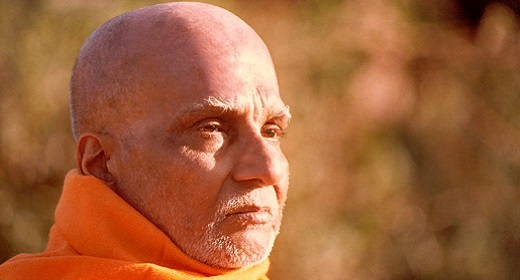by Rabbi Rami Shapiro: Dive into a contemplation of the definition of “pleasure,” and learn how melancholy can have similar effects…
Is pleasure a physical sensation, an emotional quality, a general attitude toward life? Is pleasure simply the opposite of pain? Is pleasure the same as happiness?
These and similar questions came to me as I prepared for my conversation with Rachel Allyn, author of The Pleasure Is All Yours on the Spirituality & Health podcast.
For me, pleasure is a lesser physical experience of a higher spiritual quality I call “sublime melancholy.” I realize it might seem odd to link pleasure with melancholy, so let me be clear what I mean by the term. The sublime happens when you encounter something—a sunset, a work of art, a piece of music, a baby—that opens you from narrow mind to spacious mind and lifts you beyond the transient to the timeless, beyond the self to the Self.
Melancholy, in the sense I am using it here, is the feeling that arises when you feel the suffering of others. Sublime melancholy is awakening to the greater Aliveness that manifests as what the Taoists call the “ten thousand joys and ten thousand sorrows” of everyday living. Sublime melancholy doesn’t lift you beyond the suffering of others, but makes you vulnerable to their suffering.
Pleasure doesn’t do any of this for me, which is why I place it below sublime melancholy. Pleasure allows me to focus on myself and to escape the suffering of the world, albeit momentarily. This isn’t to say that pleasure isn’t valuable; only that making pleasure a goal is both narcissistic and foolish. Narcissistic because it is all about you. Foolish because you cannot will yourself to feel pleasure—you can only allow yourself to be open to pleasure.
Willing yourself to pleasure is like willing yourself to laugh. The laughter you produce is inauthentic and shallow. The same is true of pleasure.
If you want pleasure in your life, you must not seek it or pursue it or force it or will it. You must simply make yourself available to it. How? By making yourself vulnerable to others.
Encounters with other beings—humans, animals, trees, plants, etc.—when they are undefended, unscripted, and non-performative naturally leads to pleasure and, sometimes, to sublime melancholy where your unity with the other awakens you not only to your joy but to their suffering as well.
As my 12 Step sponsor Burt once put it, “When you are open to another’s pain, you are open to another’s love as well. When you are vulnerable to their suffering, you are gifted with their joy. And together they can lead to moments of ecstasy embracing both body and soul.”








































